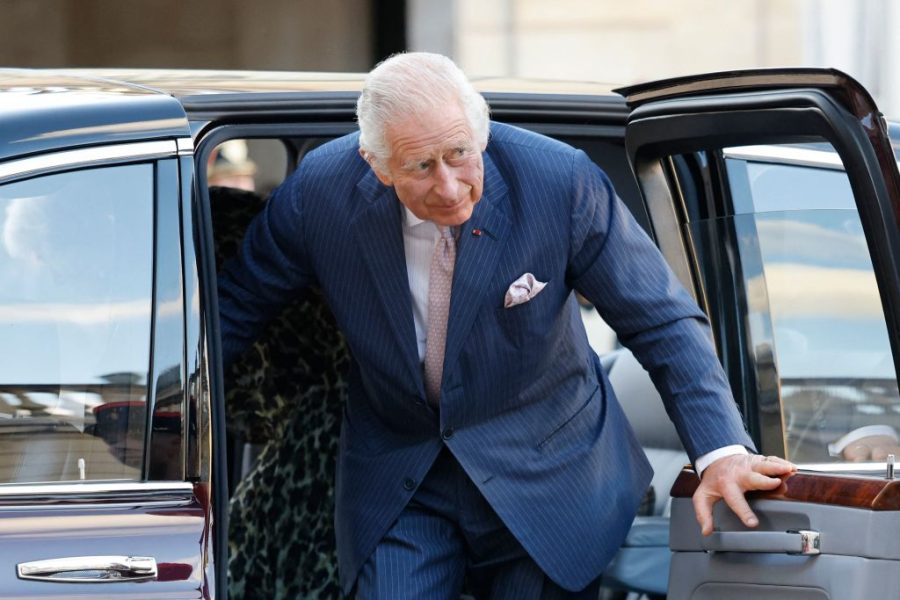There is no such thing as a ‘royal car’. Traditionally, the monarchy has been associated with various British manufacturers, such as Bentley, Rolls-Royce and (until their recent, breathtakingly misjudged advertising campaign, at least) Jaguar. But there is no equivalent of the Popemobile, brought out on every public occasion so that the King might be received by his adoring people. Instead, when one glimpses Charles, or the other major royals, in public, it is usually in the back of an extremely expensive and suitably petrol-guzzling vehicle, which sits at odds with the monarch’s avowed commitment to the environment.
In private, at least, the King has now found a compromise. It has been suggested that he has ordered a Lotus Eletre, an all-electric vehicle that its manufacturer modestly describes as ‘an unprecedented merger of exhilarating performance, luxury and technology. A one-of-a-kind Hyper-SUV that defines a new class of cars – and redefines your standards’. Yours for a mere £120,000.
The King’s own personal feelings towards the Chinese leave something to be desired
Certainly, although we are unlikely to see Charles appearing on Top Gear any time soon (although who knows?) the King has a deep interest in motoring and in expensive, high-end cars. This may seem at odds with his ascetic, vaguely monastic tendencies, but it is also a reminder that the monarch has never been one to stint himself on luxuries and the high-end stuff. This will strike most people, apart from deep-seated republicans, as fair enough; after all, not only is it his own money he is spending, but it would be rather embarrassing to see the country’s monarch scooting about in a Fiat 500.
The Lotus Eletre, which proudly trumpets its green credentials, may yet replace Charles’s traditional choice of a Bentley as his private vehicle. It is understood that the King wishes to ensure that his own cars (including a 21st birthday gift from his mother, the deeply stylish and equally expensive Aston Martin DB6 Mk2 Volante) can be as environmentally friendly as possible. Noises have been made about how he wishes to become the first monarch to have a wholly net zero-compliant stable of vehicles; a commitment that will require a great deal of expensive refurbishment if his existing cars are going to make the cut.
Few would raise any serious objection to Charles’s desire that his cars should be electric-powered (and his decision to eschew Tesla might be seen as a tacit rebuke to that company’s founder Elon Musk, whose political leanings over the last couple of years stand in stark contrast to the King’s) but there are still questions over his choice of Lotus as a manufacturer. Although the company was founded in Britain in the fifties and would superficially describe itself as British to this day, the division responsible for their electric cars, Lotus Tech, is headquartered in that most notorious of Chinese cities, Wuhan, and Lotus itself is majority owned by the Chinese automotive conglomerate Geely.
Relations between Britain and China could hardly be described as warm at the moment (although Starmer seems to want to address this), and the King’s own personal feelings towards the Chinese leave something to be desired. Not only has the recent espionage scandal involving Prince Andrew caused the monarchy reputational damage, but in remarks about the 1997 handover of Hong Kong to the Chinese, Charles made several unguarded comments about the move, which he disapproved of. In a private document entitled ‘The Handover of Hong Kong of the Great Chinese Takeaway’, he referred caustically to senior Chinese officials as ‘appalling old waxworks’ and lamented the ‘ridiculous rigmarole’ and ‘awful Soviet-style display’ that the ceremony was freighted with. It was leaked, to great embarrassment, and much damage ensued.
There can be no doubt as to the King’s patriotism and sincere love of his country, nor his genuine interest in environmental issues. Yet neutral observers might note that this is Charles all over, in that an idea that looks sound – even commendable – in theory swiftly falls apart when it is placed under greater scrutiny. Once, the then-Prince of Wales held China in contempt, but now he is King, he is happy to buy their cars and therefore further their technological economy, rather than directly investing in his own country’s. Plus ca change, alas.







Comments